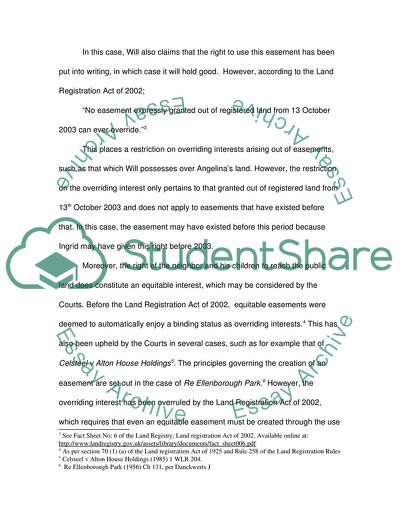Cite this document
(The Ownership in the Land Case Study Example | Topics and Well Written Essays - 2500 words, n.d.)
The Ownership in the Land Case Study Example | Topics and Well Written Essays - 2500 words. https://studentshare.org/law/1711248-problem-question-on-formalities-and-the-creation-of-third-party-interests-in-land-and-enforceability-in-the-registered-system
The Ownership in the Land Case Study Example | Topics and Well Written Essays - 2500 words. https://studentshare.org/law/1711248-problem-question-on-formalities-and-the-creation-of-third-party-interests-in-land-and-enforceability-in-the-registered-system
(The Ownership in the Land Case Study Example | Topics and Well Written Essays - 2500 Words)
The Ownership in the Land Case Study Example | Topics and Well Written Essays - 2500 Words. https://studentshare.org/law/1711248-problem-question-on-formalities-and-the-creation-of-third-party-interests-in-land-and-enforceability-in-the-registered-system.
The Ownership in the Land Case Study Example | Topics and Well Written Essays - 2500 Words. https://studentshare.org/law/1711248-problem-question-on-formalities-and-the-creation-of-third-party-interests-in-land-and-enforceability-in-the-registered-system.
“The Ownership in the Land Case Study Example | Topics and Well Written Essays - 2500 Words”. https://studentshare.org/law/1711248-problem-question-on-formalities-and-the-creation-of-third-party-interests-in-land-and-enforceability-in-the-registered-system.


